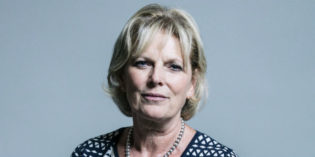Tag: Social media

Why it is essential we design the right digital democracy tools to suit local conditions
Online tools that improve citizens’ access to information about their political system and enable greater democratic participation have become central to the political landscape in many democratic countries. A new report examines how such tools have worked in Sub-Saharan Africa, and finds that they can be effective, as long as initiatives are designed for each country’s circumstances, writes Rebecca Rumbul.
Social media can play a key role in campaigns against paramilitary-style assaults in Northern Ireland
Assaults on young people in Northern Ireland by paramilitary groups remain prevalent, though under-reported. Paul Reilly and Faith Gordon detail how social media has been used both by such paramilitary groups to ‘police’ young people and how it can also become a tool for organising campaigns against such violence in the long term.

Book Review | Anti-Social Media: How Facebook Disconnects Us and Undermines Democracy by Siva Vaidhyanathan
In Anti-Social Media: How Facebook Disconnects Us and Undermines Democracy, Siva Vaidhyanathan explores the paradoxically disconnective and antisocial character of social media, with a particular focus on Facebook. Commendably accessible, this book will benefit anyone looking to understand the social-mediatised world in which we are deeply immersed, writes Ignas Kalpokas.

Does citizen vigilance and social media extend or threaten democratic practices?
Social media technologies (such as Facebook, Twitter, Google, YouTube, Snapchat and Instagram) have brought about radical changes in how the media systems of liberal democracies operate. The platform providers have become powerful actors in the operation of the media system, and in how it connects to political processes. At the same time, these companies claim political neutrality, because most of their content is created by their millions of users – perhaps creating far greater citizen vigilance over government and politicians. Ros Taylor and the Democratic Audit team examine how far the UK’s social media system operates to support or damage democratic politics. Does it help to ensure a full and effective representation of citizens’ political views and interests?

Book Feature: Interview with Nine Dots Prize winner James Williams on new book Stand Out of Our Light: Freedom and Resistance in the Attention Economy
Are digital technologies making politics impossible? This question launched the Nine Dots Prize in October 2016, a new award for creative thinking in the social sciences that seeks to encourage innovative, interdisciplinary responses to the pressing issues of our time. Chosen from over 700 applicants, James Williams was announced as the inaugural winner last year with his resulting book, Stand Out of Our Light: Freedom and Resistance in the Attention Economy, published on 31 May 2018 by Cambridge University Press in hard copy and open access formats. We spoke to James about the book and becoming the first recipient of the Nine Dots Prize.

Book Review | War in 140 Characters: How Social Media is Reshaping Conflict in the Twenty-First Century by David Patrikarakos
In War in 140 Characters: How Social Media is Reshaping Conflict in the Twenty-First Century, David Patrikarakos explores how social media is shifting the power balance from governments and institutions towards individuals and networks and the impact this is having on contemporary warfare. Relating the personal stories of individuals caught up in conflict, this book underscores the centrality of narratives and storytelling to understanding the changing face of war today, writes Madeline McSherry.

Is Twitter a populist paradise?
A prominent social media presence is typically seen as critical to the success of populist politicians. However, Kristof Jacobs and Niels Spierings find that in the key case of the Netherlands, populist politicians were slower to adopt Twitter and engage with fewer people on it, seemingly preferring instead to stick to their own echo chamber.

Online abuse is driving women out of public life. It’s time to act
Public scrutiny is one thing, but the degree of online abuse now suffered by female political candidates is another. The Independent Committee for Standards in Public Life has recommended that platforms be held liable for hate speech and incitement to violence – but, writes María Rún Bjarnadóttir (University of Sussex), domestic UK law currently does not […]

You Like this and I Like that: is Facebook just an echo chamber, or is something more complicated going on?
Does Facebook create ‘echo chambers’ for its users, or is something more complicated going on? Nick Anspach (York College of Pennsylvania) created mock News Feeds and found that seeing friends endorse and comment on political items made participants 25% more likely to select political news from sources with which they agreed – and 40% more likely […]

Understanding Labour’s ingenious campaign strategy on Facebook
The 2017 election saw a stronger than foreseen performance by the Labour Party. Matt Walsh explains how Labour’s Facebook success played out, heralding the party’s overall campaign performance. GE2017 was a numbers game: by achieving very high levels of organic reach, Labour managed to target undecided voters in marginal constituencies, energise voters who had drifted away from the […]


 Democratic Audit's core funding is provided by the Joseph Rowntree Charitable Trust. Additional funding is provided by the London School of Economics.
Democratic Audit's core funding is provided by the Joseph Rowntree Charitable Trust. Additional funding is provided by the London School of Economics.